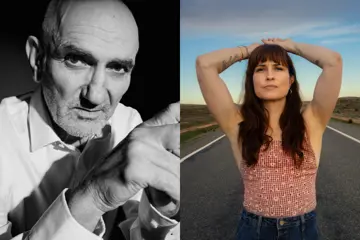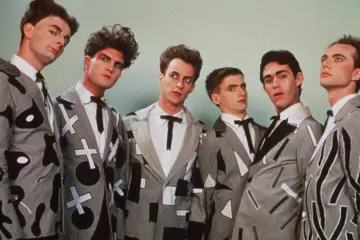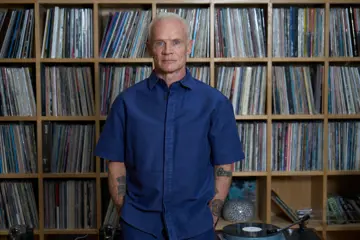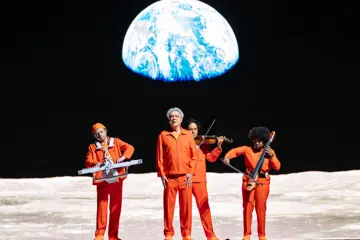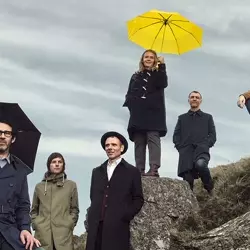 Belle & Sebastian
Belle & SebastianWay back in 1997 majestic Scottish indie-popsters Belle & Sebastian released a stream of three consecutive EPs - Dog On Wheels, Lazy Line Painter Jane and 3.. 6.. 9 Seconds Of Light (known colloquially as the Jeepster EPs after their label at the time) - instead of what would have been their third album, deciding to spread their new batch of songs out both physically and temporally.
So when almost exactly 20 years to the day after the final Jeepster EP dropped the revered cult band issued the first of a similar run of EPs - How To Solve Our Human Problems Pts 1-3 - it seemed surely at least in part an act of homage to their younger selves, a sly tip of the hat back over the ages.
Founding frontman and chief sonic architect Stuart Murdoch, however, is quick to assure that revisiting this quirky release strategy was definitely for pragmatic rather than nostalgic reasons.
"I think in actuality it was really more of a practical thing," he tells. "If you make the decision to put out a bunch of singles or a bunch of EPs it kind of frees you up. There seems something more at stake when you're faced with doing an LP - it's like doing a whole book instead of just writing a few pages - and there's an expectation that you'll come up with something great and meaningful.
Don't miss a beat with our FREE daily newsletter
"So we just set out to make some cool tracks and maybe some great singles and maybe even make them into an EP, which lets you be more creative and take a few risks - maybe capture a take of a song with somebody else singing - and that's what happened.
"And I guess we went through the same process in 1997 because that's basically what we did, but it wasn't for nostalgia reasons that we did it again, we just did it for artistic reasons."
Taken in totality the songs on the new collection cover vast tracts of sonic terrain, which Murdoch attributes to them returning to their hometown of Glasgow and recording themselves as a band - without a producer - as well as strong songwriting contributions from guitarist Stevie Jackson and keyboardist Sarah Martin.
"We had a lot of different musical ideas, but the main thing was having the confidence to follow the ideas where they would take you," he reflects. "I'm always so happy being surrounded by this bunch of people that you know can take your idea and run with it.
"That was the idea, to all get together and be connected with the music again. Stevie particularly revelled in the comparative freedom: when he gets an idea and charges into the studio he's like a wild bear. In his mind, you've got to do things first take or second take so it's spontaneous and it's noisy. Sarah's more conservative in the studio and likes to line things up and she likes to work with a producer, and I'm somewhere in between.
"But it was great having a little bit more variety in the sound, and it was partly because this time around the entire process was a little bit more democratic."
Conversely, the title How To Solve Our Human Problems - which was taken from a Buddhist tome by Geshe Kelsang Gyatso - was entirely Murdoch's doing, the singer having recently becoming fascinated by the religion's teachings.
"I picked that title for artistic reasons just because of where I was at in my life," he explains. "At the time I went to a Buddhist class and heard a reading from that book and it just appealed to me - it just clicked - so I thought, 'You have to call this collection How To Solve Our Human Problems.'
"And I'm not saying that our songs are going to save anybody's problems, but there's just something interesting about the title and if people happen to pick up the Buddhist book because of it then I think that would be fantastic."






